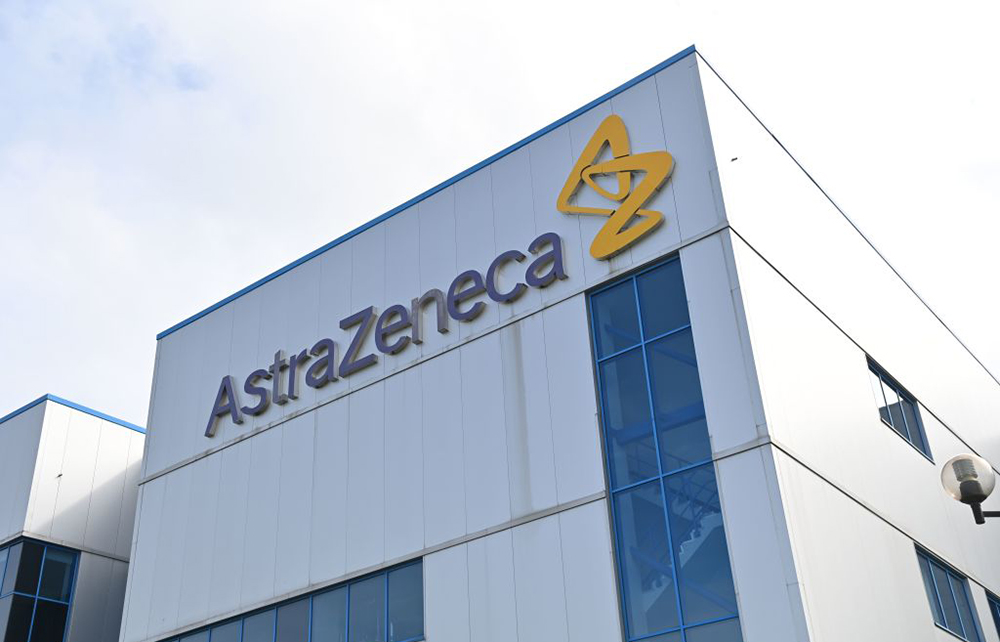‘Great news, Prime Minister, Astra-Zeneca has decided to site a new £320 million factory on Mersey-side. Your vision of the UK as a science superpower is becoming a reality.’ What a moment that would be for a Downing Street intern in search of the positive for an otherwise grim morning briefing; almost up there with ‘Great news, Prime Minister, Boris Johnson has joined a Trappist monastery’.
But no, AstraZeneca decided some time ago to put its next factory in Dublin. This is the pharma multinational that was a corporate hero of the Covid vaccine rollout and is a descendant of ICI, Britain’s greatest 20th-century science company; the very model of the kind of investor Rishi Sunak hopes to attract. But last week its boss Pascal Soriot explained why he’s not expanding his UK footprint, which include a research centre in Cambridge and factories in the north-west: because of a ‘discouraging’ tax regime, exacerbated by a notionally voluntary scheme known as VPAS that will force manufacturers of branded medicines to refund 26.5 per cent of sales revenues (up from 5 per cent in 2021) to the NHS this year.
Two US drug makers, AbbVie and Eli Lilly, have already opted out of VPAS, while Dame Emma Walmsley, who runs the rival pharma giant GSK, warns that the UK is falling behind in life sciences not only because of squeezed profits but also because of holdups in clinical trials (partly blamed on the overwhelmed state of the NHS) and delays in regulatory approvals. Sunak’s pledge to boost state-funded research makes scant difference if leaders of research-led globalised industries choose to shun high-tax, slow-progress Britain.
With apologies for repeating myself, we’ll never be a superpower in science or anything else without competitive corporate taxes and capital reliefs, plus a reputation for smart public-private co-operation and efficient delivery. Rishi Sunak and Jeremy Hunt must know that, but do they have the political determination, in the coming Budget and beyond, to make it happen?
Flag still flying
I’m intrigued by the possibility of a $30 billion-plus bid for Standard Chartered from First Abu Dhabi Bank – which turns out to be the biggest lender in the United Arab Emirates. The story first surfaced last month and was denied, not very convincingly, when Bloomberg reported it again last week.
It’s remarkable that StanChart, a British bank with strong franchises across Asia, Africa and the Middle East, has resisted takeover interest from all quarters ever since Standard (originally in South Africa) and Chartered (rooted in India, Shanghai and Hong Kong) merged in 1969. Both Lloyds and Barclays made approaches, Lloyds’ 1986 bid having been defeated by ‘white knights’ led by the Singaporean tycoon Khoo Teck Puat, whose blocking stake eventually passed to Temasek, Singapore’s sovereign wealth fund. Mainland Chinese banks then tried to buy out Temasek but were turned away.
Iran-related money-laundering charges tarnished the StanChart brand in the 2010s, but its flag still flies under a respected chief executive, Bill Winters. I’d be sad to see it pass to international new owners – but other suitors will emerge, the Bank of England will have its say, and City columnists will have a rare bid-battle saga to comment upon.
Towers of wellness
Last week my eye was on the hospitality sector, battling through its cost-of-business crisis. This week I’ve been talking to players in office development – another sector that in London never stops. But it is facing long-term falls in overall demand in response to flexible work patterns – and a ‘flight to quality’ that demands higher-spec buildings in the best locations, with an emphasis on ‘wellness’: in-house gyms, cleaner air, natural light, more space per person.
Currently setting a City benchmark is 22 Bishopsgate: a 1.3 million square-foot skyscraper that dwarfs neighbours such as the Cheesegrater (122 Leadenhall Street) and calls itself a ‘vertical village’. Now almost fully let, it has capacity for 12,000 desks and parking for 1,700 bicycles – but hybrid working means it may never actually hold more than 5,000 people at a time.
And a thing of beauty it’s not. The crop of City towers conceived in the 2000s as a response to Canary Wharf and built out over the past decade or so may one day have to be largely repurposed but will remain a permanent offence to the skyline: symbolic, perhaps, of the City’s delusional self-aggrandisement before 2008. If you’re not a habitué of the modern Square Mile, take the Tube to Bank and look east from the Mansion House at the monsters now overshadowing the classical Royal Exchange: tell me you don’t think it a crying shame.
Schools tax-grab folly
Who is leasing the capital’s costliest new office space in this time of retrenchment? Insurers, private equity partners and lawyers are reportedly well to the fore: 22 Bishopsgate boasts at least two major US law firms. But what of bankers – surely post-Brexit trade barriers mean they can’t still be expanding? ‘Well, they’re certainly not leaving for Paris or Frankfurt,’ one developer told me. ‘European cities just don’t have enough private school places for their children.’
And that makes an interesting footnote to Toby Young’s polemic last week on the folly of Labour’s proposal to subject independent schools to VAT and full business rates. If the tax grab makes no discernible difference to state-school standards but leads to closure of 200 private schools and shrunken facilities in those that survive – as opponents have suggested – what effect will that have on the UK’s attractiveness to expats, on the education sector’s potential for earnings from overseas, and on inward investment more widely? What if AstraZeneca’s top scientists won’t work here because there are no schools to suit their brainy kids? Even Labour’s ardent class warriors must be capable of that kind of cost-benefit analysis.







Comments